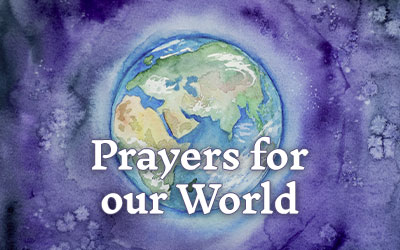Strengthening the Soul of Your Leadership: Seeking God in the Crucible of Ministry

As an often burnt-out mid-career missions leader in early 1990’s, I remember being deeply impacted by the writings of the Dutch theologian and contemplative, Henri Nouwen. His book The Way of the Heart describes the all important role of solitude and silence in our lives to purify us from being driven by the “false self”-- the constant need to conform ourselves to the expectations of those around us rather than living life from the inside out, from who we really are in the Lord.
Ruth Haley Barton is an author and spiritual director who leads the Transforming Center, a ministry to pastors and other ministry leaders. I was refreshed and encouraged by her book Strengthening the Soul of Your Leadership which is a take-off on Jesus’ warning, “And what do you benefit if you gain the whole world but lose your own soul? Is anything worth more than your own soul?” (Matthew 16:26). Her insightful work examines the experience of Moses and how his personal encounters with God in silence and solitude both prepared and undergirded him for 40 frustrating and challenging years of leading his people Israel to door of the Promised Land.
Here are some of the rich conclusions Barton comes to through her reflection on Moses’ long and quiet experience in the desert and how that experience made him fit to lead. She observes: “Moses’whole life can be viewed through the lens of his private encounters. He did not seem to have any great strategies for leadership except to seek God in solitude and then carry out what God revealed to him there. He routinely sought God (or God sought him), there was an encounter, and then Moses did what God told him to do. For Moses, leadership was that simple!”
In emulating Moses’ simple leadership style, she advocates our leaving the company of others for a time, letting go of our need to fix things outside ourselves and attend to what needs to be done “in the deep interior places of our life” as “the most important work to be done right now.” It is essential to have such times of aloneness with God, otherwise “our leadership cannot be a force for good if it is not being refined by the rigors of true solitude, that place where God is at work beyond what we are able to do for ourselves or would even know how to do for ourselves.”
It is in such times when we open ourselves fully to the searching presence of God that we begin to see things about ourselves that were lurking beneath the surface. For Moses, it was his tendency to erupt with uncontrolled anger. She writes: “Only those who have been brave enough to ride their own monsters of anger and greed, jealousy and narcissism, fear and violence all the way to the bottom will find a truer energy with which to lead. Only those who have faced their own dark side can be trusted to lead others towards the Light. This is where true spiritual leadership begins. Everything that comes before is something else.”
She talks of the bondage of “Christian busyness” which most of us understand quite well but often are not disciplined enough to escape. She also covers the often difficult task of leaders to guard the unity of the spiritual community as their most important occupation as reflected in Jesus’ last prayer for the disciples (John 17:11) since it is the way that the devil (diabolos or divider) is defeated and the world comes to believe in Him.
Though Moses was not allowed to go into the Promised Land, she thinks that he had come to the point in life where for him “the presence of God was the Promised Land” so it was not a punishment but actually a blessing that soon followed with his exiting earth into the pure presence of the Lord. Her summary sentence captures the essence of being leaders whose souls have not gotten lost along the way: “This is a leader with strength of soul—one who continually seeks God in the crucible of ministry and for that reason is able to stay faithful to the call of God upon their life—to do their small part—until God calls them home.” I heartily commend this valuable book for your own rumination and edification.
John Robb